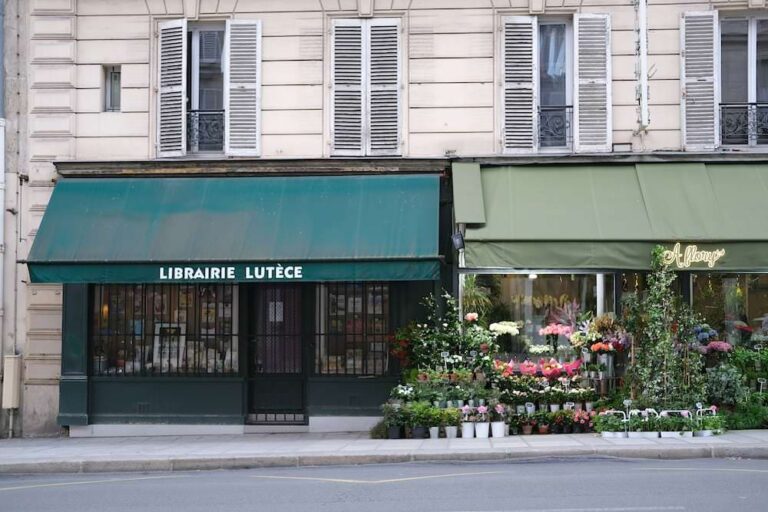Conjunctival Expressions
In French, certain expressions—called conjunctival expressions—are followed by verbs in the subjunctive mood. The subjunctive is used to express doubt, uncertainty, desire, emotion, or a necessity. Below is a list of common conjunctival expressions that require the subjunctive, along with explanations and examples.
1. Il faut que… (It is necessary that…)
This expression indicates necessity or obligation.
- Example: Il faut que tu fasses tes devoirs. (It is necessary that you do your homework.)
2. Bien que… (Although…, Even though…)
Used to express a concession or contrast.
- Example: Bien que je sois fatigué, je vais travailler. (Although I am tired, I am going to work.)
3. Pour que… (So that…)
Indicates purpose or intent.
- Example: Je te donne mon numéro pour que tu puisses m’appeler. (I give you my number so that you can call me.)
4. Avant que… (Before…)
Used to indicate that one action occurs before another. Note that the subjunctive is NOT required after the expression “après que” (after), although many native speakers mistakenly use the subjunctive instead of the indicative.
- Example: Nous partirons avant que le soleil ne se lève. (We will leave before the sun rises.)
5. À moins que… (Unless…)
Indicates an exception or condition.
- Example: Je viendrai à moins qu’il ne pleuve. (I will come unless it rains.)
6. Quoique… (Although…)
Similar to bien que, used to express a concession.
- Example: Quoique ce soit difficile, je vais essayer. (Although it is difficult, I will try.)
7. Jusqu’à ce que… (Until…)
Indicates that an action will continue until a certain point.
- Example: Attends ici jusqu’à ce que je revienne. (Wait here until I return.)
8. Sans que… (Without…)
Indicates that something happens without something else happening.
- Example: Il est parti sans que personne ne le remarque. (He left without anyone noticing.)
9. De peur que… / De crainte que… (For fear that…)
Expresses a fear or concern that something might happen.
- Example: Elle chuchote de peur que quelqu’un l’entende. (She whispers for fear that someone might hear her.)
10. Pourvu que… (Provided that…)
Expresses a condition or a wish.
- Example: Je viendrai pourvu qu’il fasse beau. (I will come provided that the weather is nice.)
Key Points to Remember:
- The subjunctive is usually found in subordinate clauses introduced by these conjunctival expressions.
- The subjunctive is used to express subjectivity, such as doubt, emotion, or necessity.
- Conjunctival expressions often introduce a condition, purpose, or an action that hasn’t yet happened, making the use of the subjunctive appropriate.
11. Autant que… (As far as… / As much as…)
Used to express a limitation or comparison.
- Example: Autant que je sache, il n’est pas encore arrivé. (As far as I know, he hasn’t arrived yet.)
12. Quoi que… (Whatever…)
Indicates an action or situation that will remain the same, regardless of circumstances. This is different to “quoique” as a single word, which means “although,” not “whatever.”
- Example: Quoi que tu fasses, je te soutiendrai. (Whatever you do, I will support you.)
13. Pour autant que… (As far as… / As long as…)
Used to express a condition or limitation.
- Example: Pour autant que je sache, il n’a rien dit. (As far as I know, he didn’t say anything.)
14. Sans que… (Without…)
Indicates an action happening without another action.
- Example: Ils ont réussi sans que nous les aidions. (They succeeded without us helping them.)
15. À condition que… (On the condition that… / Provided that…)
Indicates a condition that must be met.
- Example: Je viendrai à condition que tu sois là. (I will come on the condition that you are there.)
16. Pour peu que… (As long as… / Provided that…)
Used to express a minimal condition that will lead to a certain outcome.
- Example: Pour peu qu’il vienne, nous serons ravis. (As long as he comes, we will be delighted.)
17. Non que… (Not that…)
Expresses a negation or rejection of a possible reason.
- Example: Non que je sois contre, mais je préfère attendre. (Not that I’m against it, but I prefer to wait.)
18. De manière que… / De façon que… (So that… / In such a way that…)
Indicates purpose or consequence.
- Example: Parle de manière que tout le monde puisse comprendre. (Speak so that everyone can understand.)
19. De sorte que… (So that…)
Used to express purpose or result.
- Example: Il a parlé doucement de sorte que le bébé ne se réveille pas. (He spoke softly so that the baby wouldn’t wake up.)
Summary of Additional Points:
- Autant que, quoi que, and bien que can introduce subjunctive phrases related to limitations, comparisons, and contradictions.
- Expressions like à condition que, pour peu que, and non que indicate conditions that lead to the subjunctive.
- De manière que, de façon que, and de sorte que introduce clauses expressing purpose or results.






